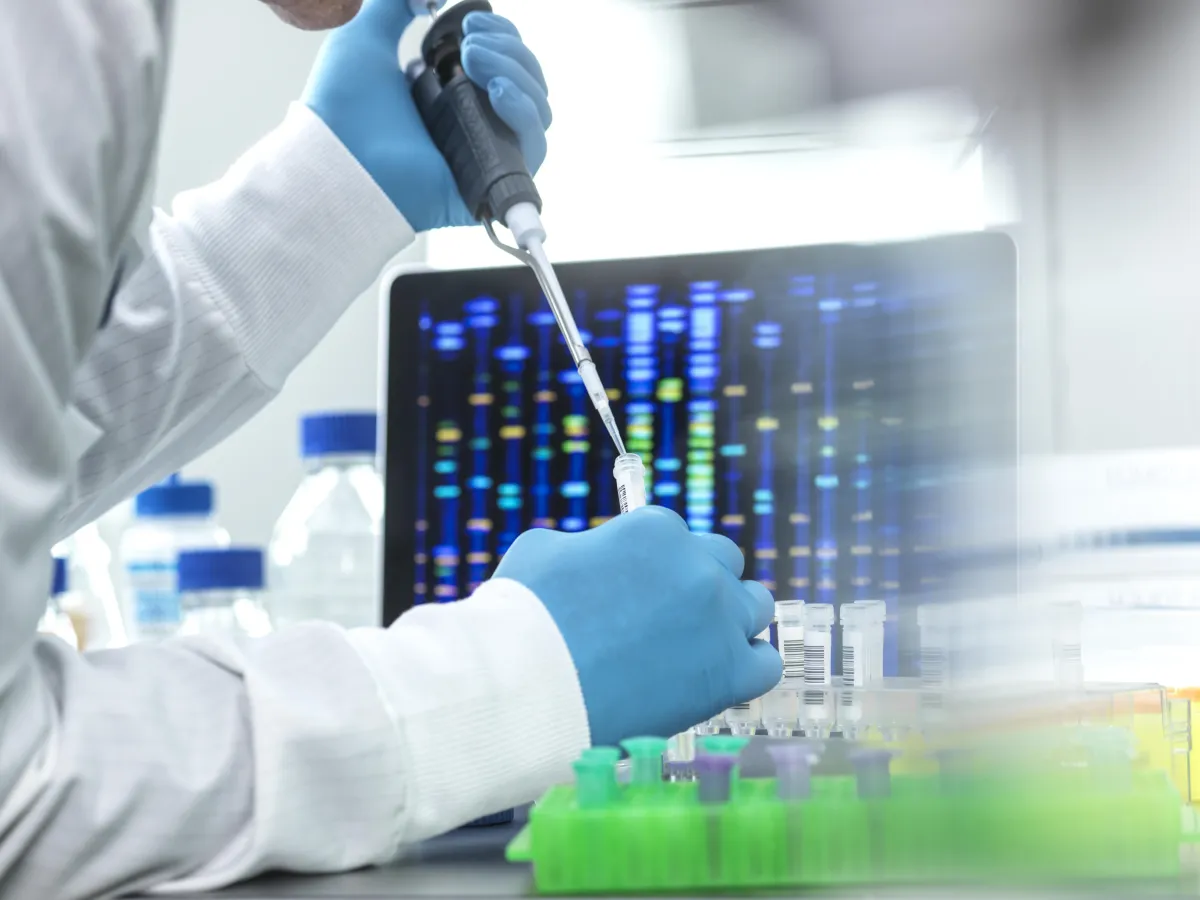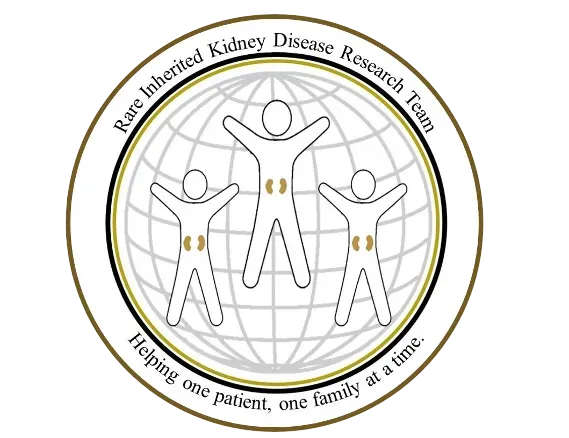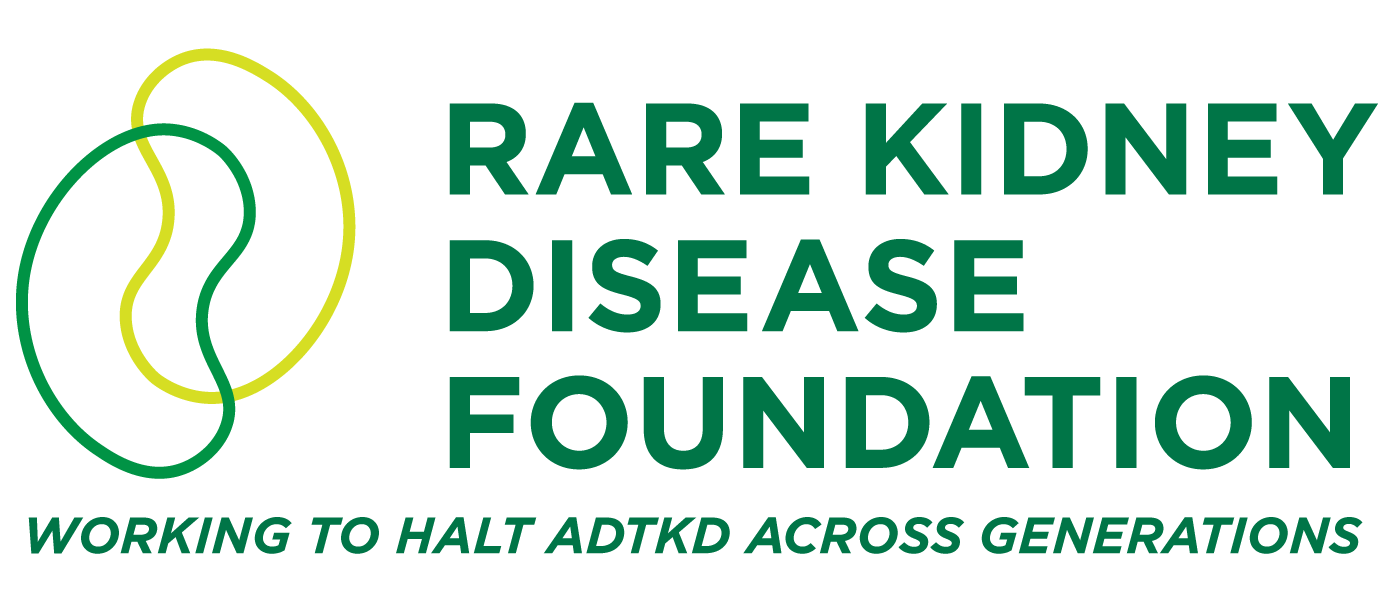For Physicians
"Every nephrologist cares for a patient with ADTKD."
- Dr. Anthony J. Bleyer, Nephrologist, Wake Forest University School of Medicine
Did You Know?

Autosomal Dominant Tubulointerstitial Kidney Disease (ADTKD) is the
2nd most prevalent genetic kidney disease in the U.S. (after PKD).
An estimated 75,000 to 100,000 of kidney patients in the U.S. - and an estimated one million worldwide - have ADTKD.
Yet too few kidney patients and nephrologists are aware of ADTKD.
This leads to fraught diagnostic journeys and missed opportunities for appropriate disease management.
What is ADTKD?
Mutations in certain genes lead to abnormal protein production that damages the kidneys’ tubulointerstitium, causing progressive decline in kidney functioning until dialysis or transplantation is required.

ADTKD includes at least seven different subtypes, named for the genes that are affected:
ADTKD-UMOD
ADKTD-MUC1
ADTKD-REN
ADTK-HNF1B
ADTKD-SEC61A1
ADTKD-DNAJB11
APOA4
To date, ADTKD-MUC1 and ADTKD-UMOD comprise the majority of ADTKD cases.
Why Haven't I Heard of ADTKD?
Prior to the discovery of the UMOD gene mutation in 2001, ADTKD-UMOD was known as:
familial juvenile hyperuricemic nephropathy type 1 (FJHN1);
uromodulin-associated kidney disease (UMOD-associated kidney disease); or
medullary cystic kidney disease type 2.
Prior to the discovery of the MUC1 gene mutation in 2013, ADTKD-MUC1 was known as medullary cystic kidney disease type 1.
What Are the Defining Features of ADTKD?
There are three defining features of all subtypes of ADTKD, which serve as red flags:
🚩 Autosomal dominant inheritance. All subtypes of ADTKD involve autosomal dominant inheritance.
🚩 Bland urinary sediment. Because ADTKD affects the tubules and not the glomerulus, there is no blood and rarely is there protein in the urine.
🚩 Slow progression over many years. The rate of decline can vary widely – both across families and for individuals within the same family – with some experiencing end-stage renal failure in their 20s, while others do not experience kidney failure until their 70s or 80s.
How is ADTKD Diagnosed?

ADTKD may be suspected if an individual has one or more of the defining features listed above.
The most definitive test for ADTKD is genetic testing.
Kidney imaging and kidney biopsies do not help diagnose ADTKD
Why Refer Your Patients for Genetic Testing?
To identify the underlying cause of their CKD.
To facilitate appropriate disease management.
They may wish to join the International ADTKD Registry in order to take part in an upcoming clinical trial of a promising treatment being developed by Dr. Anna Greka and her team at the Broad Institute of MIT and Harvard.
Even if your patient is on dialysis or post-transplant, genetic testing lets them know if others in their family are at risk for ADTKD or other genetic kidney diseases.
A genetic diagnosis leads to a reclassification of the original diagnosis
50% of the time and a change in disease management
90% of the time.
What is the International ADTKD Registry?
The International ADTKD Registry is a group of individuals diagnosed with ADTKD through genetic testing who have agreed to participate in research on inherited kidney disease.
This registry was created by
Dr. Anthony Bleyer, Sr., and is administered by the Rare Inherited Kidney Disease Research Team at Wake Forest University School of Medicine.

Why is Participation in the Registry Important?
Every patient who tests positive for ADTKD and joins the International ADTKD Registry help researchers learn more about this insidious kidney disease.
It also brings our research partners one step closer to gaining the number of patients needed for a near-term clinical trial of one or more promising treatments.
How You Can Help
Look for the red flags in your patients. A family history of CKD with no known cause, a slow decline in kidney function, and a bland urinary sediment could indicate ADTKD.
Discuss ADTKD and genetic testing options with your patients. Genetic testing is available, affordable, and the most definitive way to diagnose ADTKD.
Refer patients with suspected ADTKD to RKDF. RKDF directs interested patients to genetic testing and provides a supportive community for patients and families with confirmed ADTKD.
“Hidden in Plain Sight”
The Rare Kidney Disease Foundation (RKDF) is a patient-focused nonprofit organization resolute in HALTING the devastating impacts of ADTKD across generations by supporting physician-researchers in their efforts to learn more about this insidious disease affecting 75,000 to 100,000 patients in the U.S. and in their quest to find a treatment and, eventually, a cure.
We are all volunteers who have ADTKD or have a family member with ADTKD.
Selected Research on ADTKD
Bleyer AJ, Kidd K, Johnson E, et al. Quality of life in patients with autosomal dominant tubulointerstitial kidney disease . Clin Nephrol. 2019;92(6):302-311. doi:10.5414/CN109842. Available from: https://pubmed.ncbi.nlm.nih.gov/31587753/
Bleyer AJ, Kidd K, Robins V, et al. Outcomes of patient self-referral for the diagnosis of several rare inherited kidney diseases. Genetics in Medicine. 2019; 22(1): 42-149. doi:10.1038/s41436-019-0617. Available from: https://pubmed.ncbi.nlm.nih.gov/31337885/
Bleyer AJ, Kidd K, Živná M, and Kmoch S. Autosomal dominant tubulointerstitial kidney disease: A review. Am J Kidney Dis. 2025 Aug 18: S0272-6386(25)00975-8 doi: 10.1053/j.ajkd.2025.05.015 Epub ahead of print. PMID: 40835155. Available from: https://pubmed.ncbi.nlm.nih.gov/40835155/
Bleyer AJ, Kidd K, Živná M, Kmoch S. Autosomal Dominant Tubulointerstitial Kidney Disease. Adv Chronic Kidney Dis. 2017;24(2):86-93. doi:10.1053/j.ackd.2016.11.012. Available from: https://www.ncbi.nlm.nih.gov/pmc/articles/PMC5488707/
Bleyer AJ, Kidd K, Živná M, et al. Autosomal Dominant Tubulointerstitial Kidney Disease – UMOD. 2007 Jan 12 [Updated 2021 Dec 23]. In: Adam MP, Feldman J, Mirzaa GM, et al., editors. GeneReviews® [Internet]. Seattle (WA): University of Washington, Seattle; 1993-2024. Available from: https://www.ncbi.nlm.nih.gov/books/NBK1356
Bleyer AJ, Živná M, Kidd K, et al. Autosomal Dominant Tubulointerstitial Kidney Disease – MUC1. 2013 Aug 15 [Updated 2021 Oct 21]. In: Adam MP, Feldman J, Mirzaa GM, et al., editors. GeneReviews® [Internet]. Seattle (WA): University of Washington, Seattle; 1993-2024. Available from: https://www.ncbi.nlm.nih.gov/books/NBK153723/
Econimo L, Schaeffer C, Zeni L, Cortinovi R, Alberici F, Rampoldi L, Scolari F, Izzi C. Autosomal Dominant Tubulointerstitial Kidney Disease: An Emerging Cause of Genetic CKD. Kidney Int. 2022 Nov;11(7):2332-2344. doi: 10.1016/j.ekir.2022.08.012. Available from https://pubmed.ncbi.nlm.nih.gov/36531871/
Kmochová T, Kidd KO, Orr A, Hnízda A, Hartmannová H, Hodaňová K, Vyleťal P, Naušová K, Brinsa V, Trešlová H, Sovová J, Barešová V, Svojšová K, Vrbacká A, Stránecký V, Robins VC, Taylor A, Martin L, Rivas-Chavez A, Payne R, et al.. Autosomal dominant ApoA4 mutations present as tubulointerstitial kidney disease with medullary amyloidosis. Kidney Int. 2024 Apr;105(4):799-811. doi: 10.1016/j.kint.2023.11.021. Available from https://pubmed.ncbi.nlm.nih.gov/38096951/
Shamam YM, Hashmi MF. Autosomal Dominant Tubulointerstitial Kidney Disease. [Updated 2023 Jun 26]. In: StatPearls [Internet]. Treasure Island (FL): StatPearls Publishing; 2024 Jan-. Available from: https://www.ncbi.nlm.nih.gov/books/NBK568710/
Živná M, Kidd KO, Barešová V, Hůlková H, Kmoch S, Bleyer AJ Sr. Autosomal dominant tubulointerstitial kidney disease: A review. Am J Med Genet C Semin Med Genet. 2022;190(3):309-324. doi:10.1002/ajmg.c.32008. Available from:https://pubmed.ncbi.nlm.nih.gov/36250282/
Sign up for our Newsletter TODAY to make sure you never miss a story!
Read about patient health and well-being, the latest research on ADTKD, progress in finding a treatment, and much more.

© 2026 Rare Kidney Disease Foundation - All Rights Reserved
Privacy Policy | Terms and Conditions
Rare Kidney Disease Foundation is a 501(c)(3) non-profit organization. Federal tax ID: 82-4421861